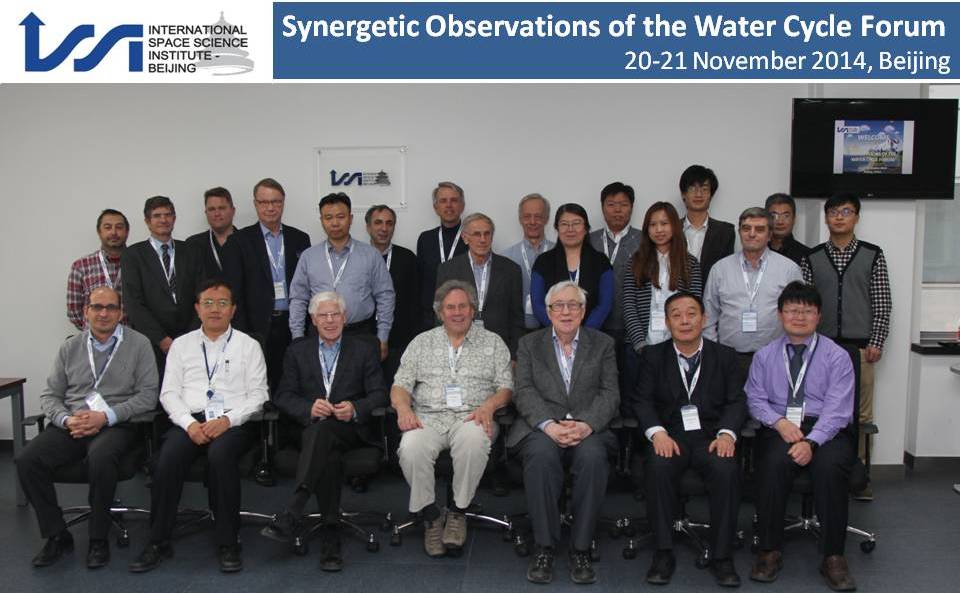ISSI-BJ Held Synergetic Observations of Water Cycle Forum
The International Space Science Institute – Beijing (ISSI-BJ), which was jointly established by the International Space Science Institute (ISSI) in Bern, Switzerland, and the National Space Science Center (NSSC) of the Chinese Academy of Sciences (CAS), in last year, held the international forum on synergetic observations of water cycle in Beijing, from November 20 to 21. The objective of this forum is to have an open brainstorm for the scientific scenarios of the Water Cycle Observation Mission (WCOM), which is one of the candidate missions for pre-study, supported by the CAS Strategic Priority Project on Space Science.
This forum was convened by Professor SHI Jiancheng from the Institute of Remote Sensing and Digital Earth (RADI, CAS), Professor WU Ji and DONG Xiaolong from the National Space Science Center (NSSC, CAS), Professor Lennart Bengtsson from University of Reading in United Kingdom and Professor Maurizio from ISSI-BJ. About 30 leading scientists on water cycle research from United States, United Kingdom, France, Spain, Finland, Switzerland and China participated in the forum.
During the meeting, key science topics and new research perspectives, requirements of modeling and forecast for observation data, requirements of water cycle key parameters observation for technologies and the payload selection and configuration of the water cycle observation satellite were discussed. During the discussions, the participants confirmed the significance of the scientific objectives and necessity of WCOM mission for global water cycle research and showed interests in collaboration in future research. The forum also provided important suggestions for further demonstration and promoting the preparation of the mission.
During the conference, the participants also visited the CAS Key Laboratory of Microwave Remote Sensing of the National Space Science Center, where they made an on-site investigation to the progresses of development of the payload for WCOM mission and highly assessed the achievements of the laboratory in research and development of microwave remote sensing technology for earth observations and space explorations.



